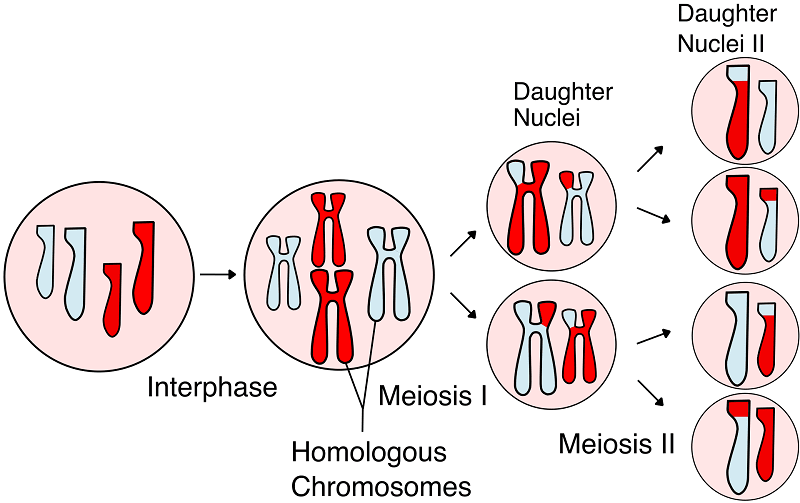In this post I propose a curious genetic question that can be modeled with a remarkably simple answer. If you have children, what is the probability that every allele in your genome is present in at least one of your children? In other words, if you have children, what is the probability that your entire genome has been replicated in the next generation?
Note: I do not believe there is a correct number of children to have. This blog post is just for fun. An organism's biological purpose is not to replicate its genome. Rather, an organism's biological purpose is simply to reproduce.
For an explanation of biological purpose, I invite you to read Debunking the Selfish Gene by T. K. Van Allen.
As a human, you have two sex chromosomes XY or XX, and you have 22 homologous pairs of autosomal chromosomes (autosomes) numbered 1 through 22. Your child receives 23 chromosomes from you and 23 chromosomes from the other parent. The manner in which each chromosome is transmitted to your child is independent of the manner in which the other chromosomes are transmitted to your child. Each autosome has a roughly probability of being transmitted as a crossover of your own homologous autosome pair during cellular meiosis. And each autosome has a roughly probability of being transmitted as an identical copy of 1 of your 2 corresponding homologs during cellular meiosis.
In this image, chromosomes of different size correspond to differently numbered chromosomes. Chromosomes of the same size and different single colors correspond to homologs of the same numbered chromosome. The H-shaped things are two chromatids attached at a centromere, and the 1-shaped things are lone chromatids. Dual-colored chromatids were generated by a crossover event during meiosis I. The end result of meiosis is 4 gamete cells. A single gamete cell from each of 2 parents fuse to form the zygote.
Source: Wikimedia Commons
Because chromosomes are transmitted independently, the probability that all of your autosome pairs are replicated into your children is just the probability that one of your autosome pairs is replicated into your children, raised to the power of 22.
(see the rest of the post in the link)

He's referring to biological value, as it's defined in: "What is value?". Biological value is not the same as the type of value that you're thinking of. It's distinct from the other types of value. Biological value claims are truth claims, unlike other types of value claims. A claim about biological value, such as "cutting down the tree is bad for the tree" or "overdosing on fentanyl is bad for you" is a truth judgment, not a value judgment. I could want to cut down the tree, and still understand that it is bad for the tree to be cut down.
Organisms are designed to reproduce. If organisms weren't designed to reproduce, then they won't reproduce, they will have no descendants, and organisms will stop existing altogether.
Yes, exactly.
No, it isn't. It's impossible to describe biology without using normative language, since biology is intrinsically teleological. I don't understand why this is a stumbling block. We always use normative language when talking about biology. Normative language is often used descriptively, as in "this soil is good/optimal for pine trees". Or "smoking is bad for one's health and fertility". Disease is "dis"-"ease". Disorder is "dis"-"order". There is no way to talk about biology without using normative terms.
Evolution selects forms based on their effects. Thus, the effects explain the form. But it's not just the effects. Certain effects, which might not even be probable, explain the form. Those effects are the telos. The telos explains the form.
I really don't understand what your issue is. He said "biological purpose", not purpose in general. The author understands that biological purpose is not the same thing as subjective purpose. These two types of purpose are clearly different concepts, and I see no conceptual mess. There is no ambiguity here.